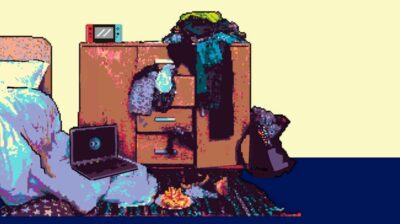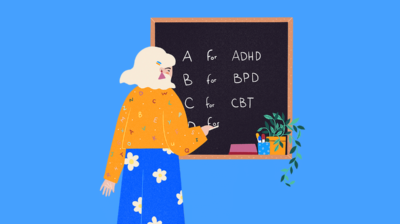How my recovery from depression is a constant process
In Diarmuid’s recovery from depression and anxiety, he shares the techniques that show his strengths when it comes to mental health.

Most people describe mental health recovery as a process. But what does an actual recovery journey look like? It’s such an individual process that you have to figure it out yourself sometimes. This can be absolutely terrifying but just like most things in life the scariest is the most rewarding.
Recovery is such a broad term and such a hard concept to observe that when I hear it, I don’t actually know what it involves. What is it supposed to look like? Is it something you do every day? What do you actually do?
Looking back at how I figured out my mental health struggles, I just kept waiting and waiting for it to pass but it never did. It followed me through schools, college, jobs, and even other countries. I hated myself because of it. I hated that it seemed I was the only one who was struggling and that it seemed there was nothing actually wrong with me.
Accepting my depression and anxiety
People just kept saying ‘It will pass’ and ‘It’s just a phase’ but it was only when I started to accept it that my recovery began. I had to accept that my depression and anxiety were not a “dark cloud” or “demon” that was trying to ruin my life.
I had to accept ‘this is me’, and that is truly when I began to actually work through my problems through a different lens. This didn’t happen overnight. It took time to completely change my thought process and try to live with something I hated for so long, this for me is when the recovery began.
Of course, it is going to be exhausting and drawn out and most importantly it is a process that may never end. This might sound like a negative but as soon as I accepted that this is not a demon or a cloud over my life, this is me, this is who I am and that may never change, this is when the true healing can begin.
So instead of denying it or hating myself because of it, I had to learn to accept it. Now I use it every day as a strength. If you think that depression and anxiety can not be used as a strength, I am using both of them right now to write this article. This does not mean you are not fighting these thoughts and feelings, it just means you are fighting them in the right way.
Taking my time to heal from depression
I think what a lot of people get wrong about mental health recovery is the time it takes. Whether they are just starting their own or looking at someone else, many presume it can just be a few tough months. Of course, it can but in my opinion, it is a constant ongoing process that requires practice and patience.
In my experience, mental health is not like a cold or flu. It is very unlikely you will just wake up one day “better”. It is a long process filled with day-to-day exercises, coping mechanisms and battling those negative thoughts. Changing your mindset can be an incredibly difficult thing to do, seemingly impossible, so, of course, it is going to take time. For me it took almost 6 years to even begin to heal, I was so angry at myself and everything around me and kept asking “Why me?”. I had to change my way of thinking, the way I viewed myself and in turn with that the world. This is actually when my recovery journey began when I stopped trying to get rid of these thoughts and feelings and actually looked at why I was thinking and feeling them.
What recovery from depression actually looks like
But what does recovery actually look like? Am I going to just wake up one day and be a brand-new person ready to take on the world? Chances are unfortunately no. This is a long and drawn-out process. For me, figuring out what actually works and what doesn’t was extremely difficult. Eventually, I developed a concept that helped me figure out what I actually needed to do. I split it up into two sections and called them ‘passives’ versus ‘actives’.
First the activities, for me were the visible and measurable actions I was actively taking to better myself, such as going to therapy, meditation, and using a journal. It also involved the physical side, which cannot be ignored, like the gym, exercising, diet and sleep. The last three I particularly disliked but we can’t ignore the overwhelming evidence that they do matter!
The passives were a bit different. Think of it as enjoying the little things. This for me was doing something that didn’t feel like I was working on myself, but I actually just did not tell the depression that! I will at least once a day do something that I like doing, something that can take my mind off of life even for just five minutes. For me this was music, and it has always been music for me, I have no problem even saying I owe certain artists my life because truly they were there for me when no one else was. That might sound silly but truly it has pulled me out of some dark situations.
Another big one that I only realised actually affected me was keeping my room clean and having some sort of organisation or schedule. This was a breakthrough for me learning that this stuff actually affected my overall mental health. Having some order in my life, especially with the chaotic world around me, truly helps the day-to-day side of things.
How human connection helps my mental health
The last one is socialising. This is another one that I was in denial about. I thought I could fix it all myself and that I didn’t need anyone and yet again I was wrong! Humans are social creatures, there is no denying that, we thrive on being around others, we simply need it. This can be extremely difficult when you’re still stuck in that hole and all you want is Netflix, chocolate and bed.
This is another one that is simply unavoidable. I need human interaction and that doesn’t even mean discussing what’s going on with me with my friends. I realised sometimes I just need to talk about nothing and everything and simply forget for a little while about my own struggles and just have a laugh because we are naturally social creatures, that is how humans as a species have survived, we thrive off each other and there is no way around it, so never be afraid to ask for helps because that’s what humans do and that’s what we will always do.
Mindset is everything in mental health recovery
This work is exactly that. It’s work. Something we can’t avoid no matter how far we run or how hard we try to forget. Some of it is going to be painful, and some of it is going to be extremely boring but that is just it. It’s just work. Something we all have to do whether we enjoy it or not.
There are going to be setbacks, you are going to fail, and not everything is going to just work. We are all unique, we all have our own strategies and it can take years but, for me, mindset is everything. Instead of just waiting for this tough time to pass, I now think of my mental health as something I have to maintain and look after as a part of me, you can entirely disagree with me and that’s ok! But for me, I know these thoughts and emotions will never truly pass and it shows because I still have bad days everyone does but it’s about accepting yourself, problems and all and using those problems to be even stronger because trust me if you can beat this you can do anything!
Feeling overwhelmed and want to talk to someone?
- Get anonymous support 24/7 with our text message support service
- Connect with a trained volunteer who will listen to you, and help you to move forward feeling better
- Whatsapp us now or free-text SPUNOUT to 50808 to begin.
- Find out more about our text message support service
If you are a customer of the 48 or An Post network or cannot get through using the ‘50808’ short code please text HELLO to 086 1800 280 (standard message rates may apply). Some smaller networks do not support short codes like ‘50808’.






